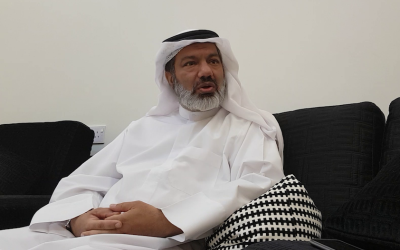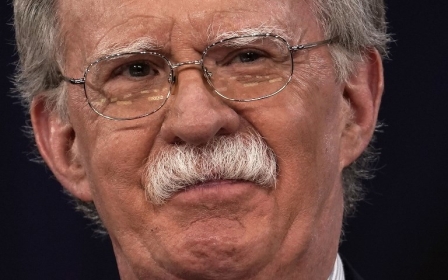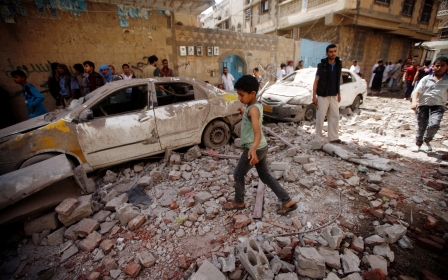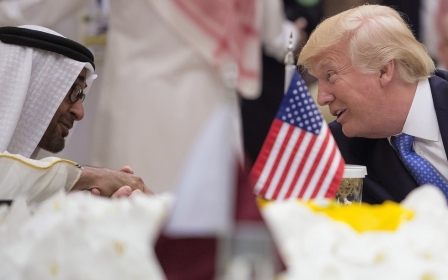UAE officials must be prosecuted over aid worker's death, lawyers urge
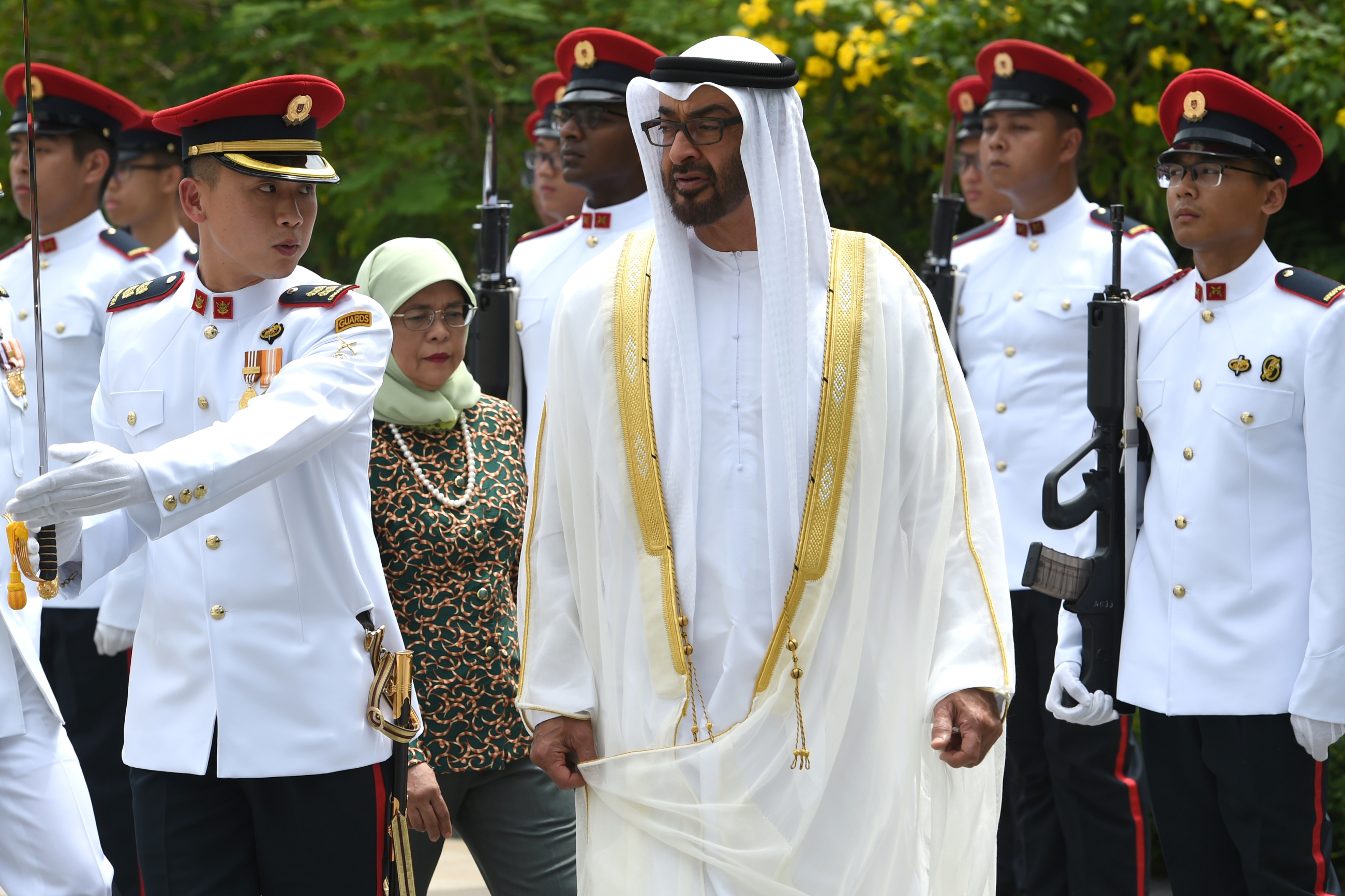
Human rights lawyers and activists have called for the arrest and prosecution of United Arab Emirates officials, after an Emirati aid worker died in prison in the Gulf country.
Alia Abdulnoor died from breast cancer at Tawam hospital in the eastern city of al-Ain earlier this month while serving a 10-year sentence on terrorism charges.
Abdulnoor's conviction was believed to be tied to her work raising money online for Syrian women and children - both in the UAE and in war-torn Syria.
Before her death, human rights groups had appealed to the Emirati government to release her on humanitarian grounds.
Speaking at a news conference in London on Thursday, the panel of lawyers and activists said Abdulnoor endured torture and solitary confinement and was denied medical treatment in prison.
New MEE newsletter: Jerusalem Dispatch
Sign up to get the latest insights and analysis on Israel-Palestine, alongside Turkey Unpacked and other MEE newsletters
"UN expert rapporteurs and European parliamentarians have clearly been satisfied that there is credible evidence that serious human rights violations occurred in the tragic case of Alia Abdulnoor," said David Young, a barrister with the Red Lion Chambers.
Without an independent investigation, or the prosecution of those responsible for Abdulnoor's death, happening in the UAE, other countries must consider exercising "universal jurisdiction in their national courts against the appropriate UAE officials as circumstances permit", Young said.
Universal jurisdiction allows states or international organisations to claim criminal jurisdiction over an accused person even if the crime was committed abroad and regardless of the nationality or country of residence of the accused.
The United Nations and human rights campaigners have said Abdulnoor disappeared for six months following her arrest in 2015, and was held in solitary confinement.
'She died basically in chains, under armed guard, in a windowless room, reportedly without ventilation'
- Joe Odell, International Campaign for Freedom in the UAE
In February, a panel of UN experts said she was being held in a windowless, unventilated room, chained to a bed and under armed guard.
The experts said Abdulnoor had been subjected to intense psychological and physical humiliation, and had been forced to sign a false confession under torture.
"We are extremely concerned about the physical and mental integrity of Ms Abdulnoor, and about reports that the conditions of detention are causing her unnecessary pain," the panel said in a statement at the time.
Appeals to release her on medical grounds were repeatedly ignored and although she was transferred to a hospital in November, she was reportedly denied adequate pain relief.
Marco Perduca, a former Italian senator and board member of the non-profit group No Peace Without Justice, told Middle East Eye that successfully investigating an Emirati official would set a strong precedent.
"It could be a big thing if a member of a wealthy Arab country is brought to trial or at least is indicted - even in absentia - for serious things like this," he said.
Perduca said the UAE's public prosecutor, the minister of justice or even the country's foreign minister could potentially be held accountable in this case.
"If someone who is considered to be responsible for the violation of human rights, and in this case we're talking about killings, is travelling to a country which could activate universal jurisdiction, then we could have a case in trying to bring this person to justice," he said.
Joe Odell, from the International Campaign for Freedom in the UAE, said that his organisation had been campaigning for Abdulnoor's release before her death.
"We had been, for the last six months, basically trying to campaign to get her early medical release on humanitarian grounds, but the UAE refused calls not just from us but from Amnesty International, Human Rights Watch, EU MEPs and the UN to grant her release," he told MEE.
"And unfortunately, she died basically in chains, under armed guard, in a windowless room, reportedly without ventilation."
Inhumane treatment
Abdulnoor's case is only the latest case of activists and ordinary citizens - both foreigners and nationals - being detained in the UAE and subjected to inhumane treatment.
The high profile case of prisoner Ahmed Mansoor - a 49-year-old electrical engineer and poet who was convicted in May 2018 and fined $270,000 for insulting the country's rulers - has provoked outcries from human rights defenders around the world.
He was arrested in March 2017 on charges of publishing false information and rumours, promoting a sectarian and hate-incited agenda, and using social media to "harm national unity and social harmony and damage the country's reputation".
Several foreign nationals have also been detained in the Gulf country.
They include British student Matthew Hedges, who was detained for seven months last year, British national Ali Issa Ahmad, and Qatari national Mahmoud al-Jaidah, who was held for two years and subjected to abuse and solitary confinement.
On Thursday, the panel urged foreign countries to reassess their relationship with the UAE and consider withdrawing from the Dubai Expo 2020.
Odell said the UAE has spent a lot of money trying to improve its standing abroad, and one clear example was the purchase of British football club Manchester City by Sheikh Mansour bin Zayed Al Nahyan, a prominent member of Abu Dhabi's ruling family.
But the purchase may have been a risky gambit, Odell said.
"You're taking a risk when you plow money into Manchester City. You can either look like a benign royal family showering gifts on the people of Manchester with premiere league titles - or it can turn around and you start getting journalists writing about human rights abuses," he said.
"Potentially, you get people turning up to the stadium with a 'free Alia' banner and suddenly these kinds of things turn into their opposite."
Middle East Eye delivers independent and unrivalled coverage and analysis of the Middle East, North Africa and beyond. To learn more about republishing this content and the associated fees, please fill out this form. More about MEE can be found here.


